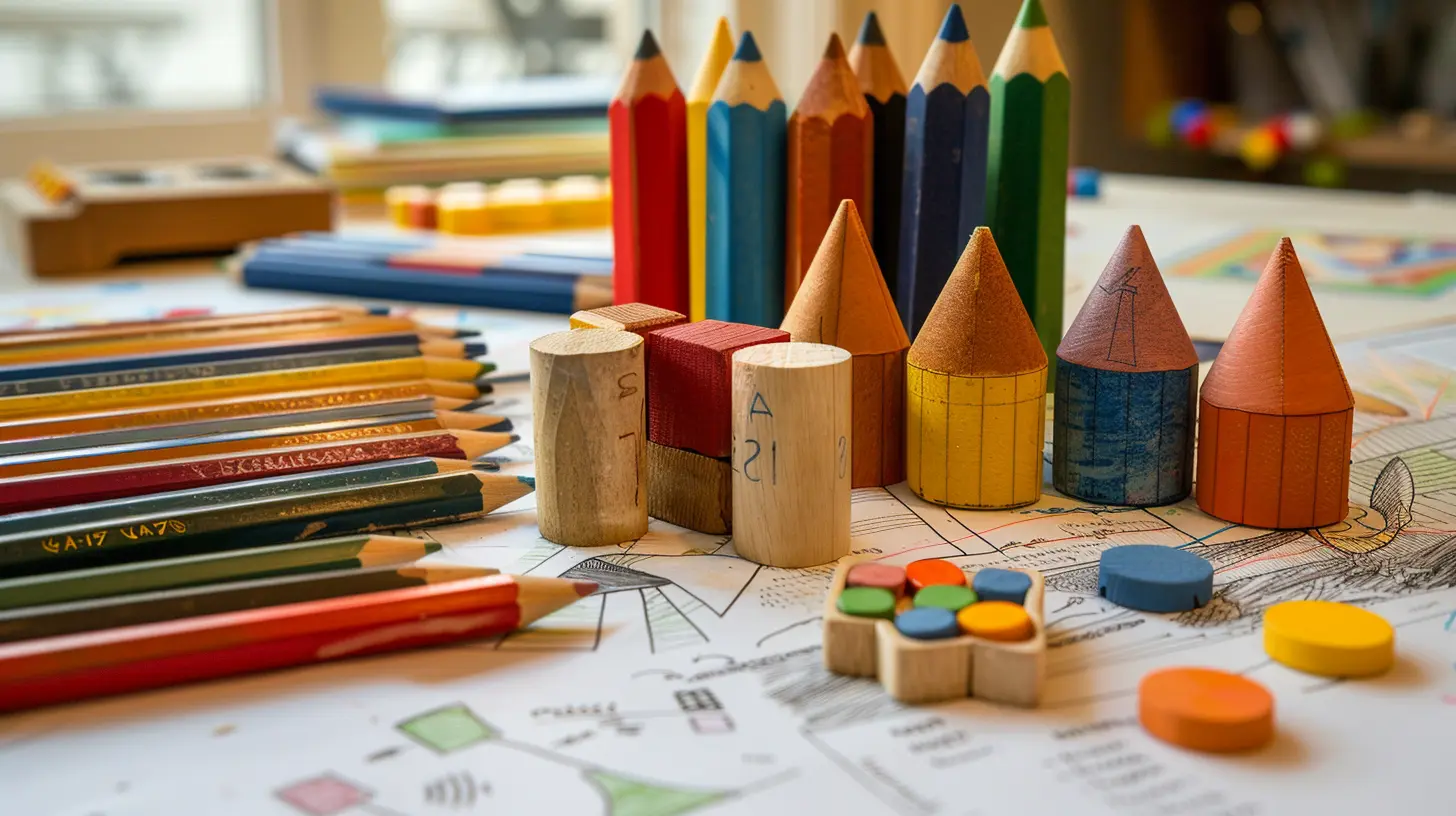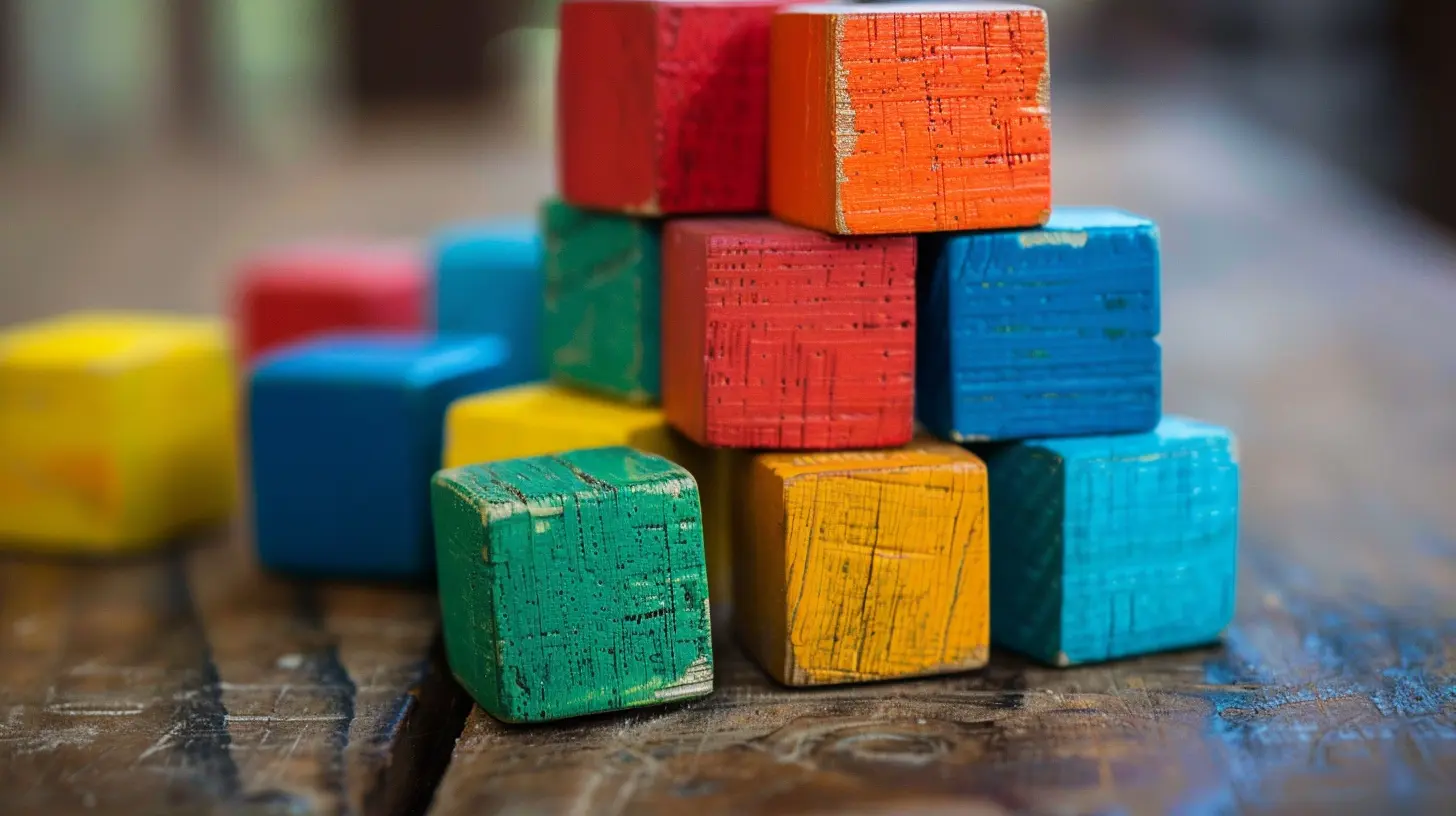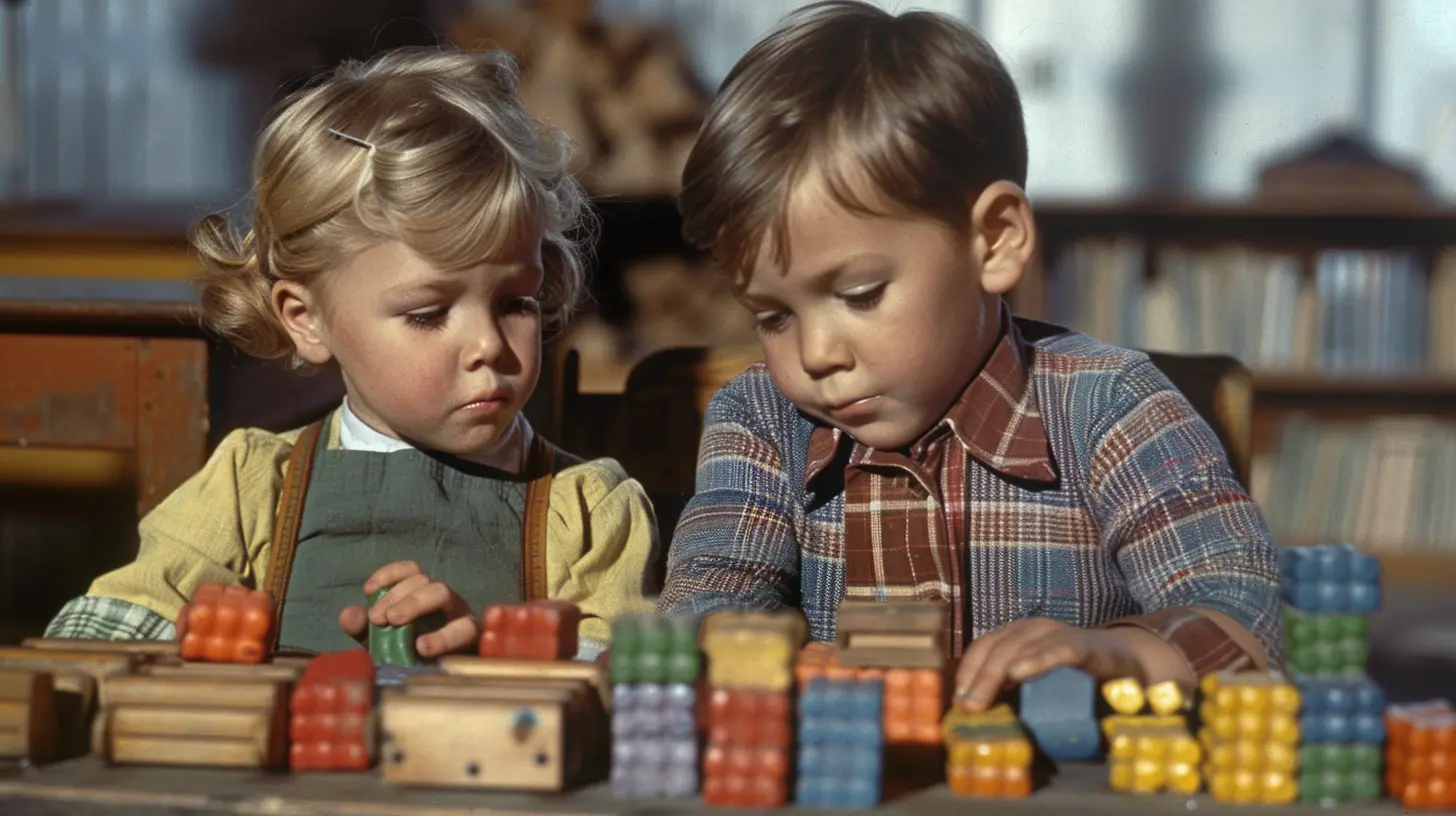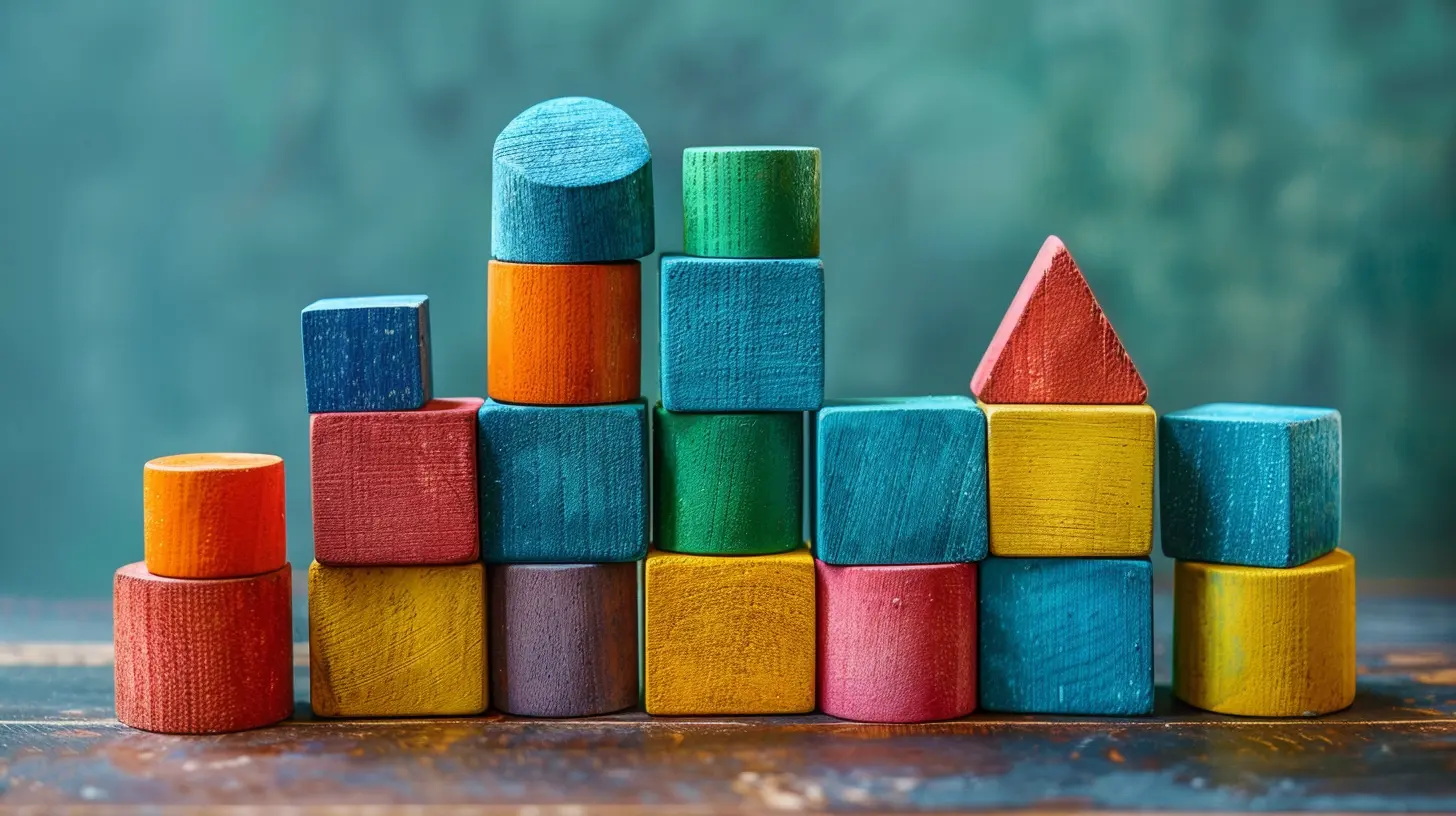Building Early Math Skills Through Everyday Activities
7 June 2025
Have you ever noticed how kids ask a million questions about the world around them? Why is the sky blue? How many steps to grandma’s house? Which cup holds more juice? These curious little minds are constantly exploring—and guess what? That curiosity is the perfect gateway to introducing math.
You don’t need flashcards, expensive programs, or formal lessons to kickstart your child’s math journey. In fact, some of the best ways to boost early math skills are hiding in your everyday routine. From grocery shopping to playtime, each moment is a golden opportunity to build a solid math foundation. So, let’s roll up our sleeves and see how you can sneak math into daily life (without anyone noticing you're teaching!).
Why Early Math Skills Matter
Before we dive in, let’s cover the basics. Early math isn’t just about counting to 10 or naming shapes. It’s the gateway to problem-solving, logical thinking, and academic success. Studies show that strong early math skills are actually better predictors of later academic achievement than early reading skills. Yep, math really is a big deal—even in preschool!So where do we start? Right at home. You don’t need to be a math whiz yourself. All you need is a little creativity, consistency, and a willingness to turn everyday moments into teachable ones.
1. Bring Math to the Kitchen Counter
Let’s be honest—the kitchen is the heart of any home. And surprise, surprise…it’s also a math playground in disguise.Counting and Measuring While Cooking
Invite your little one to be your sous-chef. When you're baking cookies or making pasta, ask for help measuring ingredients. Talk through it:- “We need two cups of flour. Can you help me count them out loud?”
- “Let’s pour half a cup of milk. See how that's less than a full cup?”
Measuring, pouring, and timing teach concepts like volume, fractions, and sequences without ever opening a textbook.
Snack-Time Sorting
Got a bag of mixed nuts or cereal? Pour it out and sort! Ask your child to group items by type, size, or color. Then count each group together. Presto! You're working on categorization, counting, and even early data collection.
2. Use Household Chores as Math Lessons
Yes, chores can be educational—and dare I say, fun?Folding Laundry: Patterns and Sorting
When folding laundry, ask your child to match socks or sort clothes by type or family member.- "Let’s find all the blue shirts!"
- "Can you create a pattern—shirt, pants, shirt, pants?"
This builds pattern recognition, sorting abilities, and attention to detail.
Setting the Table: Counting and Placement
Ask your child to set the table. It's a perfect counting activity:- "We have 4 people. How many forks do we need?"
- "Let’s put a plate in front of each chair."
You’re reinforcing one-to-one correspondence and basic addition without them even realizing it.
3. Math on the Move: Car Rides and Walks
Who says you need to sit still to learn math? Turn your errands and outings into exciting math adventures.Count Steps or Cars
While walking, take turns counting steps or spotting certain types of vehicles. For example:- “How many red cars can we find before we get to the store?”
- “Let’s count how many steps it takes to reach the mailbox!”
This improves number recognition, estimation, and observational skills.
Talk About Time and Distance
Use natural opportunities to introduce time concepts.- “We’ll be home in 10 minutes. That’s like two 5-minute songs!”
- “It takes longer to drive to grandma’s than to the park. Which trip is shorter?”
Before you know it, your child’s mental math and time judgment will improve leaps and bounds.
4. Turn Playtime into Math Time
Toys aren’t just for fun—they're tools for learning!Building Blocks = Geometry
Blocks are fantastic for understanding shapes, symmetry, and spatial awareness. Challenge your child to build a tower using only square blocks. Or ask:- “How many blocks did it take to make that house?”
- “Can you make a triangle out of these pieces?”
Board Games and Card Games
Classic games like Chutes and Ladders, Uno, or Go Fish sneak in math through counting, number recognition, and even strategy.Plus, kids learn to follow rules, take turns, and think ahead—all crucial skills in math and life.
5. Story Time with a Twist: Count While You Read
Books are a beautiful way to introduce early numeracy.Choose Math-Friendly Books
Go for picture books that involve counting, patterns, or problem-solving. Titles like Ten Little Ladybugs or The Very Hungry Caterpillar are perfect.Pause during reading to ask:
- “How many apples did he eat today?”
- “Which group has more animals?”
You’re strengthening counting skills, comparisons, and comprehension all at once.
6. Include Money and Shopping
Real-world applications are the best way for kids to see how math works in daily life.Grocery Store Games
Create mini challenges during shopping trips:- “Put three apples in the bag. Can you count them?”
- “Let’s find the cheapest cereal. Which number is smaller?”
You can also let older kids help estimate the total cost of items in the cart, which brings basic addition and rounding into play.
Play Shop at Home
Use pretend money and set up a “store” at home. Take turns being the buyer and the cashier. It’s a great way to introduce the value of coins and bills, as well as basic addition and subtraction.7. Sing Math Songs and Rhymes
Music makes learning stick. Remember Five Little Monkeys Jumping on the Bed? That song is an early subtraction lesson!Make a playlist of counting songs or rhymes. Sing along during bath time, in the car, or while cleaning up. You’ll be amazed at how quickly kids internalize number sequences and patterns when they come with a catchy beat.
8. Math in the Bath: Don’t Skip Tub Time
Even the bathtub is no math-free zone!Pouring and Estimating
Give your child measuring cups or plastic containers. Let them experiment with pouring and filling up different sizes:- “Which cup holds the most water?”
- “Can you fill this bottle halfway?”
This introduces the volume concept and problem-solving through play.
Floating Toys as Counters
Use rubber ducks or floaty whales to count, sort, and arrange in patterns. Bath time becomes math time with just a few splashes of creativity.9. Use Technology Without Overdoing It
Educational apps can complement your efforts—but don’t let screens do all the teaching.Choose Quality Apps
Look for apps that focus on interactive activities like puzzles, number games, and sequencing. Limit screen time and participate with your child when possible so you can reinforce concepts together.Remember, apps are helpful, but human connection and real-world practice are the real MVPs in early math development.
10. Celebrate Mistakes and Encourage Questions
Math is just as much about mindset as it is about getting the right answer. When kids stumble—and they will—the way we respond can either build or break their confidence.Instead of saying “That’s wrong,” try:
- “Let’s figure this out together.”
- “That was a great try—what should we try next?”
Encourage questioning, experimenting, and logical thinking. Let your child know it’s okay not to "get it" right away. After all, even Einstein probably spilled a few measuring cups of flour before figuring things out!
Final Thoughts: Make Math a Natural Part of Daily Life
You don’t need a teaching degree or a room full of math games to give your child a solid math foundation. All it takes is paying attention, being intentional, and having a little fun.Everyday life is full of math—baking, shopping, playing, singing, walking. When you start looking for math in your daily routine, you’ll see it everywhere. And this slow, steady exposure? It works. It helps kids see math not as a subject separate from life, but as an essential—and even enjoyable—part of it.
So next time your child asks, “How long until dinner?” you’ve got your moment. Break it down. Count the minutes. Sing a number song. Throw in a little estimation. You’re not just passing time—you’re building a math superstar.
all images in this post were generated using AI tools
Category:
Early Childhood EducationAuthor:

Madeleine Newton
Discussion
rate this article
3 comments
Yasmine Blevins
Absolutely essential! Integrating math into daily routines not only enhances understanding but also makes learning enjoyable. Simple activities can spark a lifelong interest in math. Let's embrace these opportunities!
June 23, 2025 at 11:32 AM

Madeleine Newton
Thank you for your insightful comment! I completely agree—integrating math into daily life can truly ignite a passion for learning in children.
Fern Pope
Who knew counting cereal could be a math masterpiece? 🍭 Let's turn snack time into a number crunching adventure! Embrace the chaos of crayons and kitchen scales—because math is everywhere, even in the cookie jar! 🍪✨
June 15, 2025 at 10:59 AM

Madeleine Newton
Absolutely! Everyday activities like snack time offer fun, hands-on ways to develop math skills. Let's keep the creativity flowing! 🍭✨
Malia Becker
Oh sure, because who wouldn’t want to turn snack time into a math lesson? I can already see the kids lining up for their “fraction cookies.” Deliciously educational! 🍪✨
June 7, 2025 at 2:49 AM

Madeleine Newton
Absolutely! Making math fun with snacks can engage kids and reinforce learning. Who knew fractions could taste so good? 🍪✨



